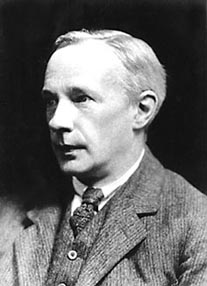Insert silly pun on G. E. Moore’s last name here: Principia Ethica and Ethics are available in full online
I’ve been meaning to post about this for a while, but other projects (some of them tangentially related, others not) delayed the happy announcement for a while: not only one, but two of G. E. Moore’s chief works on Ethics are available online, in full, for your reading and citing pleasure. As you may have already known (cf. GT 2005-07-11, GT 2005-06-28, GT 2005-06-01, GT 2005-02-18, GT 2004-12-19), I spent eight months off and on (mostly off) plugging away at a full transcription of Moore’s Principia Ethica (1903). I polished off Chapter VI: The Ideal back in August, meaning that the Fair Use Repository‘s copy of PE is now complete.
What you may not have known is that I also took some of the free time that I had at the end of the CTY session to knock out a complete transcription of Moore’s 1912 follow-up to PE, which he gave the inventive title of Ethics. (The hat tip for the idea goes to Roderick Long and Kelly Jolley, who mentioned the book to me and also expressed their pious hopes that an anonymous somebody-or-another might just happen to put the book online.)
Ethics is rarely read today, probably much more rarely than should be the case. Not because of its earth-shaking influence: no responsible history of contemporary philosophy could be written without a discussion of Principia Ethica; but it’s unlikely that even a history of the major developments in Analytic philosophy during the 1910s would take much notice of Ethics. (In fact, even folks writing specifically about Moore’s ethics mainly seem interested in Ethics only insofar as it illuminates, qualifies, or modifies his positions in PE.) And the scholarly neglect may very well be perfectly just. Ethics is neither as influential or as ambitious a book as Principia Ethica, and if your chief interest is telling the story of how early Analytic philosophy developed and how it bears on contemporary philosophy, Ethics is not going to be the most pressing item on your agenda. That’s all true, but of course it would only prove that you oughtn’t bother reading it if the only good books were influential books. The fact is indeed that Ethics is a much quieter book than Principia Ethica is; but that means only that it is quietly brilliant, where PE is obviously brilliant.
What’s so nice about Ethics is how clearly it exhibits Moore’s approach to ethics, and to philosophy as a whole: his extremely careful approach to philosophy, his precision, and most of all his apparently inexhaustible intellectual patience. There are some wonderful things that PE has and Ethics lacks–most noticeably, it lacks anything corresponding to PE‘s sustained discussion of the Naturalistic Fallacy, which Moore had made the center of his argument back in 1902. But what it lacks in treatments of specific topics, it more than makes up for in its method. Especially remarkable highlights are Chapter III and Chapter IV on The Objectivity of Moral Judgments
, which contains what Kelly rightly described as one of the most subtle and suggestive treatments of relativism in the literature
, and which are remarkable not because of some flashy or brilliant technical apparatus that Moore unleashed on the intellectual landscape, but rather just because he takes it so damn slow and draws out, in ordinary language and with an extraordinary amount of care and intellectual good faith, just what the relativist might want to say and just how it systematically fails to capture what we’re actually doing when we think about, talk about, or act on moral principles. The stuff is simply brilliant.
Ethics makes the third complete work of G. E. Moore which has been made available through the Fair Use Repository. (Besides Principia Ethica, there is also Moore’s 1903 review of an English translation of Franz Brentano’s The Origin of the Knowledge of Right and Wrong.) Since finishing up with Ethics, my two main projects for the Repository have been (1) transcribing some new works–at the moment, T. H. Green’s Prolegomena to Ethics (which is cited in passing in Principia Ethica, and was quite influential on English moral philosophy at the turn of the century, but is now almost impossible to find outside of academic libraries), and several articles from fin-de-siecle issues of Mind–and (2) improving the script that slices and dices data for the works in the Repository — so that, for example, it can represent the structure of a book like the Prolegomena to Ethics. Expect to see more soon–and in the meantime, read and enjoy!
